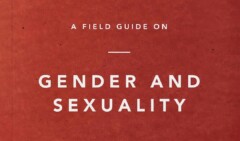Over the past couple of months, I have been writing a series of reflections on Jerry Bridges’ book The Discipline of Grace. This is such an important book–a true contemporary classic–that teaches the centrality of the gospel in the life of the Christian. Bridges was writing about gospel-centeredness long before gospel-centeredness was all the rage.
All throughout the book Bridges has shared a series of disciplines the Christian must develop as he pursues holiness. “We have seen that we must behold Christ in the gospel, we must learn the proper relationship of dependence and personal discipline, we must make a commitment to holiness, and we must develop Bible-based convictions. In the everyday application of Scripture we must learn to make the right choices, to mortify sin, and to watch against temptation.” These are all things we must do if we are to make progress in the pursuit of holiness. Though we maintain dependence upon the Holy Spirit to grow in holiness, still we must act and still we must discipline ourselves.
But there is one discipline that we do not undertake ourselves. Instead, the Lord imposes it upon us as a means of spiritual growth. This is the discipline of adversity. In the final chapter Bridges looks to Hebrews 12:4-13, a classic passage on how the Lord disciplines us for our good. It is noteworthy that a passage on the Lord’s discipline begins with an encouragement. The author of the letter to the Hebrews encourages the recipients of the letter by telling them that the Lord disciplines the ones he loves, just as a father lovingly disciplines his own children. Says Bridges, “We should realize that God’s discipline, which comes to us in the form of adversity or hardship, is an indication of His loving care, not a token of His disfavor.”
When we find ourselves under the Lord’s discipline, there are two ways that we may react wrongly–we may make light of it (or, to say it another way, we may despise it), such as when we count it as little value and something that is to be endured rather than something that is for our benefit. Alternatively, we may also lose heart under it, believing that the Lord is disciplining us out of anger rather than out of love. Bridges offers this warning:
In times of adversity Satan will seek to plant the thought in our minds that God is angry with us and is disciplining us out of wrath. Here is another instance when we need to preach the gospel to ourselves. It is the gospel that will reassure us that the penalty for our sins has been paid, that God’s justice has been fully satisfied. It is the gospel that supplies a good part of the armor of God with which we are able to stand against the accusing attacks of the Devil (see Ephesians 6:13-17).
All of this raises a question: How do we know when the Lord is disciplining us? Bridges looks to Hebrews 12:7-8 and says, “The writer instructed us to ‘endure hardship as discipline.’ There is no qualifying adjective. He did not say, ‘Endure all hardship’; neither did he say, ‘Endure some hardship as discipline.’ In the absence of a qualifying adjective, we must understand him to have meant all hardship. That is, all hardship of whatever kind has a disciplinary purpose for us. There is no such thing as pain without a purpose in the life of a believer.”
It is important to realize that this does not mean that every instance of hardship is necessarily related to a particular instance of sin. However, it does mean that all hardship is meant to bring us to greater conformity to Christ. “It is true that we often cannot see the connection between the adversity and God’s purpose. It should be enough for us, however, to know that He sees the connection and the end result He intends.” Are we ever able to tell if there is a connection between our adversity and a specific sin? He says, “It is my own belief that the Holy Spirit will bring such a connection to our attention if we need to know in order to deal with a particular sin.”
What, then, is the goal of all of this discipline? Hebrews 12:10 tells us that “God disciplines us for our good, that we may share in his holiness.” The highest good to which the believer can aspire is just this: to be conformed to the likeness of Christ and to share in God’s holiness. “This is the design of God in all of the adversity and heartache we experience in this life. There is no such thing as random or chance events in our lives. All pain we experience is intended to move us closer to the goal of being holy as He is holy.”
Thus discipline, difficult though it may be, is a means the Lord graciously uses as he calls us to grow in holiness. Sometimes Christians try to explain away 1 Thessalonians 5:18 which says to give thanks in all circumstances. But we see that we truly can rejoice in all circumstances when we know that the Lord is using them for our good and his glory.
If you have read The Discipline of Grace with me, thanks for making it to the end. Let’s read another classic very soon!
Your Turn
The purpose of the Reading Classics Together program is to read these books together. If you have something to say, whether a comment or criticism or question, feel free to use the comment section for that purpose. 










